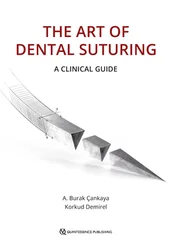To tell you that your speech is monotonous may mean very little to you,
so let us look at the nature--and the curse--of monotony in other
spheres of life, then we shall appreciate more fully how it will blight
an otherwise good speech.
If the Victrola in the adjoining apartment grinds out just three
selections over and over again, it is pretty safe to assume that your
neighbor has no other records. If a speaker uses only a few of his
powers, it points very plainly to the fact that the rest of his powers
are not developed. Monotony reveals our limitations.
In its effect on its victim, monotony is actually deadly--it will drive
the bloom from the cheek and the lustre from the eye as quickly as sin,
and often leads to viciousness. The worst punishment that human
ingenuity has ever been able to invent is extreme monotony--solitary
confinement. Lay a marble on the table and do nothing eighteen hours of
the day but change that marble from one point to another and back again,
and you will go insane if you continue long enough.
So this thing that shortens life, and is used as the most cruel of
punishments in our prisons, is the thing that will destroy all the life
and force of a speech. Avoid it as you would shun a deadly dull bore.
The "idle rich" can have half-a-dozen homes, command all the varieties
of foods gathered from the four corners of the earth, and sail for
Africa or Alaska at their pleasure; but the poverty-stricken man must
walk or take a street car--he does not have the choice of yacht, auto,
or special train. He must spend the most of his life in labor and be
content with the staples of the food-market. Monotony is poverty,
whether in speech or in life. Strive to increase the variety of your
speech as the business man labors to augment his wealth.
Bird-songs, forest glens, and mountains are not monotonous--it is the
long rows of brown-stone fronts and the miles of paved streets that are
so terribly same. Nature in her wealth gives us endless variety; man
with his limitations is often monotonous. Get back to nature in your
methods of speech-making.
The power of variety lies in its pleasure-giving quality. The great
truths of the world have often been couched in fascinating stories--"Les
Miserables," for instance. If you wish to teach or influence men, you
must please them, first or last. Strike the same note on the piano over
and over again. This will give you some idea of the displeasing, jarring
effect monotony has on the ear. The dictionary defines "monotonous" as
being synonymous with "wearisome." That is putting it mildly. It is
maddening. The department-store prince does not disgust the public by
playing only the one tune, "Come Buy My Wares!" He gives recitals on a
$125,000 organ, and the pleased people naturally slip into a buying
mood.
_How to Conquer Monotony_
We obviate monotony in dress by replenishing our wardrobes. We avoid
monotony in speech by multiplying our powers of speech. We multiply our
powers of speech by increasing our tools.
The carpenter has special implements with which to construct the several
parts of a building. The organist has certain keys and stops which he
manipulates to produce his harmonies and effects. In like manner the
speaker has certain instruments and tools at his command by which he
builds his argument, plays on the feelings, and guides the beliefs of
his audience. To give you a conception of these instruments, and
practical help in learning to use them, are the purposes of the
immediately following chapters.
Why did not the Children of Israel whirl through the desert in
limousines, and why did not Noah have moving-picture entertainments and
talking machines on the Ark? The laws that enable us to operate an
automobile, produce moving-pictures, or music on the Victrola, would
have worked just as well then as they do today. It was ignorance of law
that for ages deprived humanity of our modern conveniences. Many
speakers still use ox-cart methods in their speech instead of employing
automobile or overland-express methods. They are ignorant of laws that
make for efficiency in speaking. Just to the extent that you regard and
use the laws that we are about to examine and learn how to use will you
have efficiency and force in your speaking; and just to the extent that
you disregard them will your speaking be feeble and ineffective. We
cannot impress too thoroughly upon you the necessity for a real working
mastery of these principles. They are the very foundations of successful
speaking. "Get your principles right," said Napoleon, "and the rest is a
matter of detail."
It is useless to shoe a dead horse, and all the sound principles in
Christendom will never make a live speech out of a dead one. So let it
be understood that public speaking is not a matter of mastering a few
dead rules; the most important law of public speech is the necessity for
truth, force, feeling, and life. Forget all else, but not this.
When you have mastered the mechanics of speech outlined in the next few
chapters you will no longer be troubled with monotony. The complete
knowledge of these principles and the ability to apply them will give
you great variety in your powers of expression. But they cannot be
mastered and applied by thinking or reading about them--you must
practise, _practise_, _PRACTISE_. If no one else will listen to you,
listen to yourself--you must always be your own best critic, and the
severest one of all.
The technical principles that we lay down in the following chapters are
not arbitrary creations of our own. They are all founded on the
practices that good speakers and actors adopt--either naturally and
unconsciously or under instruction--in getting their effects.
It is useless to warn the student that he must be natural. To be natural
may be to be monotonous. The little strawberry up in the arctics with a
few tiny seeds and an acid tang is a natural berry, but it is not to be
compared with the improved variety that we enjoy here. The dwarfed oak
on the rocky hillside is natural, but a poor thing compared with the
beautiful tree found in the rich, moist bottom lands. Be natural--but
improve your natural gifts until you have approached the ideal, for we
must strive after idealized nature, in fruit, tree, and speech.
1. What are the causes of monotony?
2. Cite some instances in nature.
3. Cite instances in man's daily life.
4. Describe some of the effects of monotony in both cases.
5. Read aloud some speech without paying particular attention to its
meaning or force.
6. Now repeat it after you have thoroughly assimilated its matter and
spirit. What difference do you notice in its rendition?
7. Why is monotony one of the worst as well as one of the most common
faults of speakers?
EFFICIENCY THROUGH EMPHASIS AND SUBORDINATION
In a word, the principle of emphasis...is followed best, not
by remembering particular rules, but by being full of a
particular feeling.
--C.S. BALDWIN, _Writing and Speaking_.
The gun that scatters too much does not bag the birds. The same
principle applies to speech. The speaker that fires his force and
emphasis at random into a sentence will not get results. Not every word
is of special importance--therefore only certain words demand emphasis.
Читать дальше












